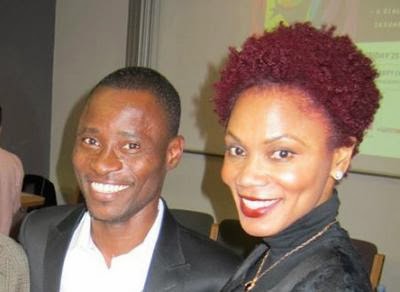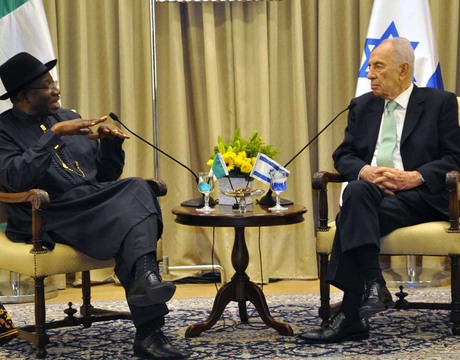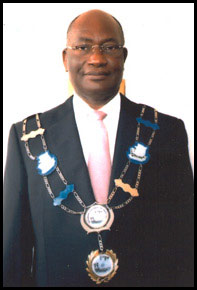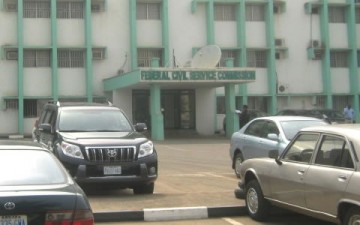By IKENNA EMEWU
•Exclusive full report of 21-point vexed agreement
•How we lost 34 months to strike in 14 years
At the latest and current onslaught, the Academic Staff Union of
Universities (ASUU), simply put, all lecturers in all federal and state
universities, have been at war for about 110 days with the Federal
Government.
It is a war Nigerians are aware of but don’t have the details of what really transpired in the much cited 2009 agreement
And from
Abuja Metro investigations, the nation’s university
system has lost close to three years to strike in 14 years. It is a
total of about 33 months, 15 days as at today and the count continues
until the last day of the present strike.
Because these strikes were not continuous, it unleashed 14
interruptions in 14 years, indicating that no year has been spared of
ASUU strike in the period in review. Of the years, 2004 and 2012 that
would have escaped the endless and fruitless strikes inherited
protracted wars that spilled over to them from the previous years.
Ironically, the 2009 four-month strike that led to the disputed
agreement that still causes wars till now was immediately followed the
following year with a longer crisis that lasted five months and one
week.
From the document in our possession from the Senate Committee on
Education, ASUU entered into a 21-point deed with the FG in 1999, as a
way of putting a stop to the endless strikes. Clauses 1 -6 of the
agreement involve benefits of the university teachers to enable them
work better.
Clauses 7 to 21, which constitute the bulk of the agreement are about
making the universities better and suitable for learning. Outside the
major issues, the agreement contains 27 sub clauses on conditions of
implementation.
But the major point of disagreement is the funding of universities in
Clause 7 whose cost is reduced to monetary figures. ASUU asked the FG
to better fund the universities and that entailed a three-year plan. But
the total proposed figure for the better funding amounts to
N1,518,331,545,304 (One trillion, five hundred and eighteen billion,
three hundred and thirty one million, five hundred and forty five
thousand, three hundred and four naira)
A breakdown of the funding into three years which the FG also
admitted to adhere to itemized average of N472, 031,575, 919 in 2009,
N497,331, 778, 701 for 2010, and N548,768,190, 681 for 2011. Apart from
full implementation, it is doubtful if the FG ever funded the
universities in the past years with these sums as agreed to in a pact it
executed as ASUU’s reason for strikes has remained the
non-implementation of the agreement.
If there is any impossibility in the agreement signed by the two
parties, it is essentially Clause 7(b) that states that “Each State
University shall require N3,680,018 per student for the period 2009 –
2011.”
In Clause 7 (c)(d) the agreement itemized that: “A minimum of 26
per cent of the annual budget of the state and federal government be
devoted to education,” and that: Education should be put on a ‘First
Charge’” in the budget respectively.
At the Senate last week, while debate was on, Senator Adeyeye, a
professor who represents one of the constituencies in Osun State faulted
both the government for entering into impossible agreement and ASUU for
drafting impossible and untenable conditions in the agreement. He
questioned the rationale of compelling the FG in a deed to fund state
universities it does not own and did not set up. He saw FG’s acceptance
as irrational. But most of all, Adeyeye could not understand why
lecturers could require allowances to supervise examinations, post
graduate students works and other academic related works. His argument
is that these constitute the core of lectureship and there is no need to
pay lecturers extra benefits for doing the work for which they are
lecturers.
The academic senator said the condition does not obtain anywhere in
the academic world where teachers should be paid special benefits for
teaching and marking exam scripts.
But there was none however that faulted the issue of funding as they
agreed the demand by the lecturers for such is in order and for the good
of the education system. The details of the agreement are presented
fully, the first time in media report.
ASUU ASTRIKES SINCE 1999
1999 – 5 months
2001 – 3 months
2003 – 6 months that stretched into early 2004
2005 – 3 days
2006 – 1 week
2007 – 3 months
2008 – 1 week
2009 – 4 months
2010 – 5 months, 1 week
2011 – 3 months that extended into 2012
2013 – over 3 months
Total – 33 months, about 15 days
ASUU/FG 2009 AGREEMENT
In October 2009 the Federal Government of Nigeria (FGN) and the
Academic Staff Union of Universities (ASUU) entered into an agreement
which covers the following areas:
1. Salary structure for academic staff of Nigerian universities;
2. Earned academic allowances.
Post graduate supervision allowance, teaching practice/industrial
supervision/field trip allowances, honoraria for external/internal
examiner (postgraduate thesis), Honoraria for External Moderator of
Undergraduate and Postgraduate Examinations, Postgraduate Study grant,
External Assessment of Readers of professors, Call Duty/Clinical Hazard,
Responsibility Allowance, excess Workload Allowance.
3. Non-salary Condition of Service Vehicle Loan/car Refurbishing
Loan, Housing Loan, Research leave, sabbatical Leave, Sick Leave,
Maternity Leave, Injury pension, Staff Schools, provision of
Accommodation and facilities.
4. Pension of University academic Staff and compulsory Retirement Age.
5. Formation of the Nigerian University Pension Fund Administrator.
6. National Health Insurance Scheme (NHIS).
7. Funding of Universities:
a. All regular federal universities shall require the sum of One
Trillion, Five Hundred and Eighteen Billion, Three Hundred and
Thirty-One Million, Five Hundred and Forty-Five Thousand, Three Hundred
and Four Naira (N1, 518, 331, 545, 304) only for the period 2009 – 2011
as follows:
2009 - N472, 031, 575, 919
2010 - N497, 331, 778, 701
2011 - N548, 768, 190, 681
b. Each State University shall require N3,680,018 per student for the period 2009 – 2011 as follows:
2009 – N1,144, 075
2010 - N1, 205, 880
2011 - N1, 330, 063
c. A minimum of 26% of the Annual Budget of the State and Federal Government be.
d. Education should be put on a ‘First Charge’
e. Federal Government Assistance to States for Higher education
f. Education Tax Fund Act to be amended to its original conception as Higher Education Fund
g. Governing Council of Universities shall access and effectively
utilize funds from PTDF for research, training and development of
Academic Staff
8. Transfer of Landed Property
9. Patronage of University Services
10.Funds from Alumni Association
11. Private Sector Contributions
12. Cost Saving Measure
13. Duty Free Importation of Educational Materials by Universities
14. Setting up Research Development Unit by Companies operating in Nigeria.
15. Budget Monitoring Committee. Each University Council shall set up Budget Monitoring Committee.
16. University Post Doctoral Fellowship: Each University Governing
Council should introduce Post Doctoral Fellowship Leave with pay outside
Nigeria.
17. Provision for teaching and Research Development
18. National Research Fund
19. University Autonomy and Academic Freedom:
a. Membership of Governing councils
b. Review of Laws that impede University Autonomy, Academic Freedom, Internal Accountability and Transparency.
c. Sole Administrators for Nigerian Universities. No Sole Administrator.
d. Pre-Degree/Remedial Programmes to be limited.
e. Pyramidal structure of Academic Staff Establishment in Universities.
f. Expenditures on Academic Affairs
20. Issues that require legislation:
a. Joint Admission and matriculation Board (JAMB) Act 2004 to provide
for better collaboration between JAMB and the Universities consistent
with the autonomy of the Universities.
b. Amendment of the National Universities Commission Act 2004 to
make its provision more consistent with University Autonomy and powers
of the Senate on Academic matters.
c. Amendment of the Education (National Minimum Standards and
Establishment of Institutions) Act 2004 to better articulate the
co-coordinating function of the NUC in the accreditation exercise and
the establishment of Minimum standards.
21. Setting up an Implementation Monitoring Committee to monitor the implementation of the Agreement with the following members
a. Two members representing the Committee of Pro Chancellors
b. The Chairman Committee of Vice-Chancellors of Federal Universities (CVC)
c. One member representing NUC as Secretary
d. One member representing the Federal Ministry of Education
e. Five members representing ASUU and
f. A recommendation that the following be members of the Committee:
•One Representative of the Senate Committee on Education
•One Representative of the House Committee on Education.
•Chairman Committee of Pro Chancellors of State Universities
•Chairman Committee of Vice Chancellors of State Universities.



















